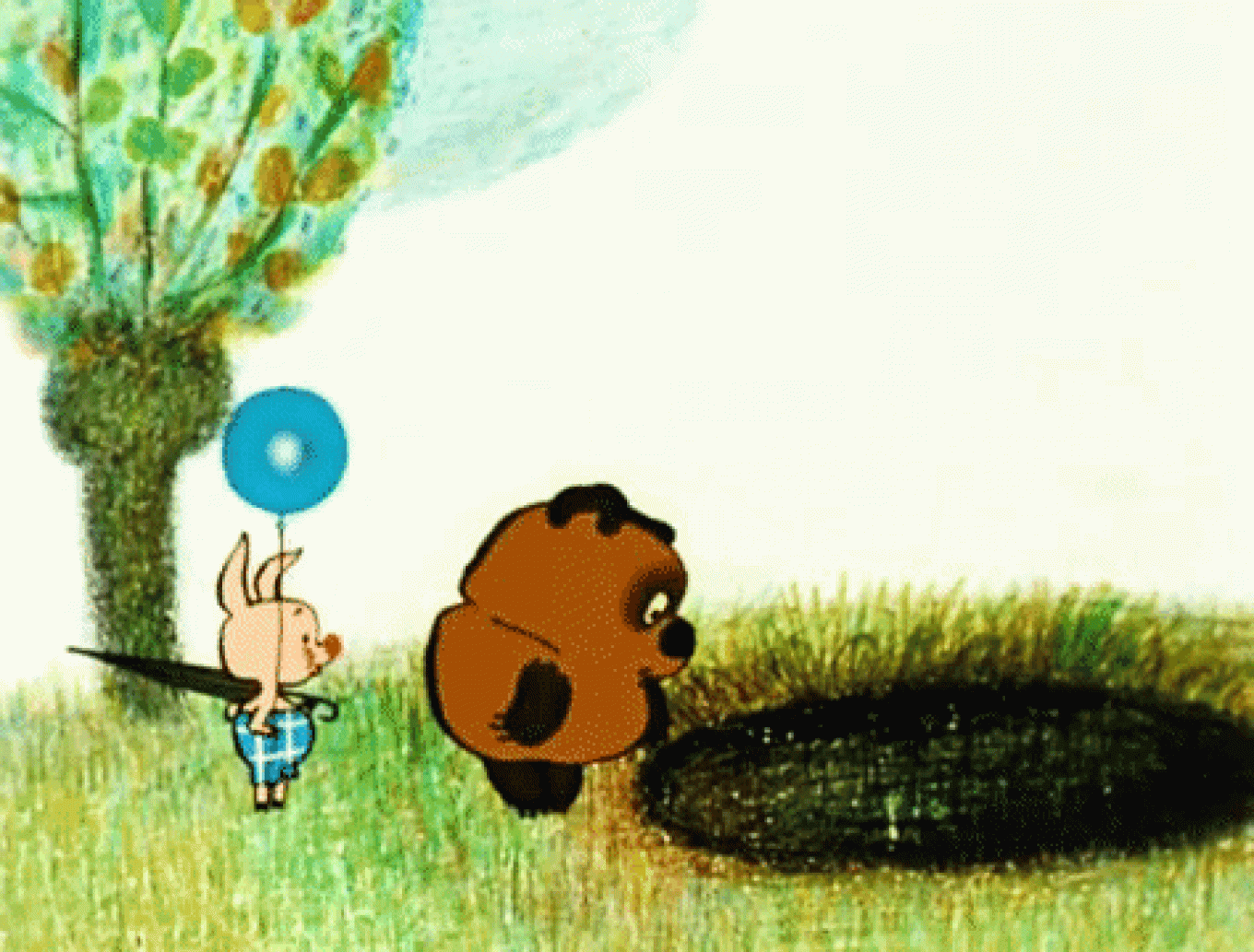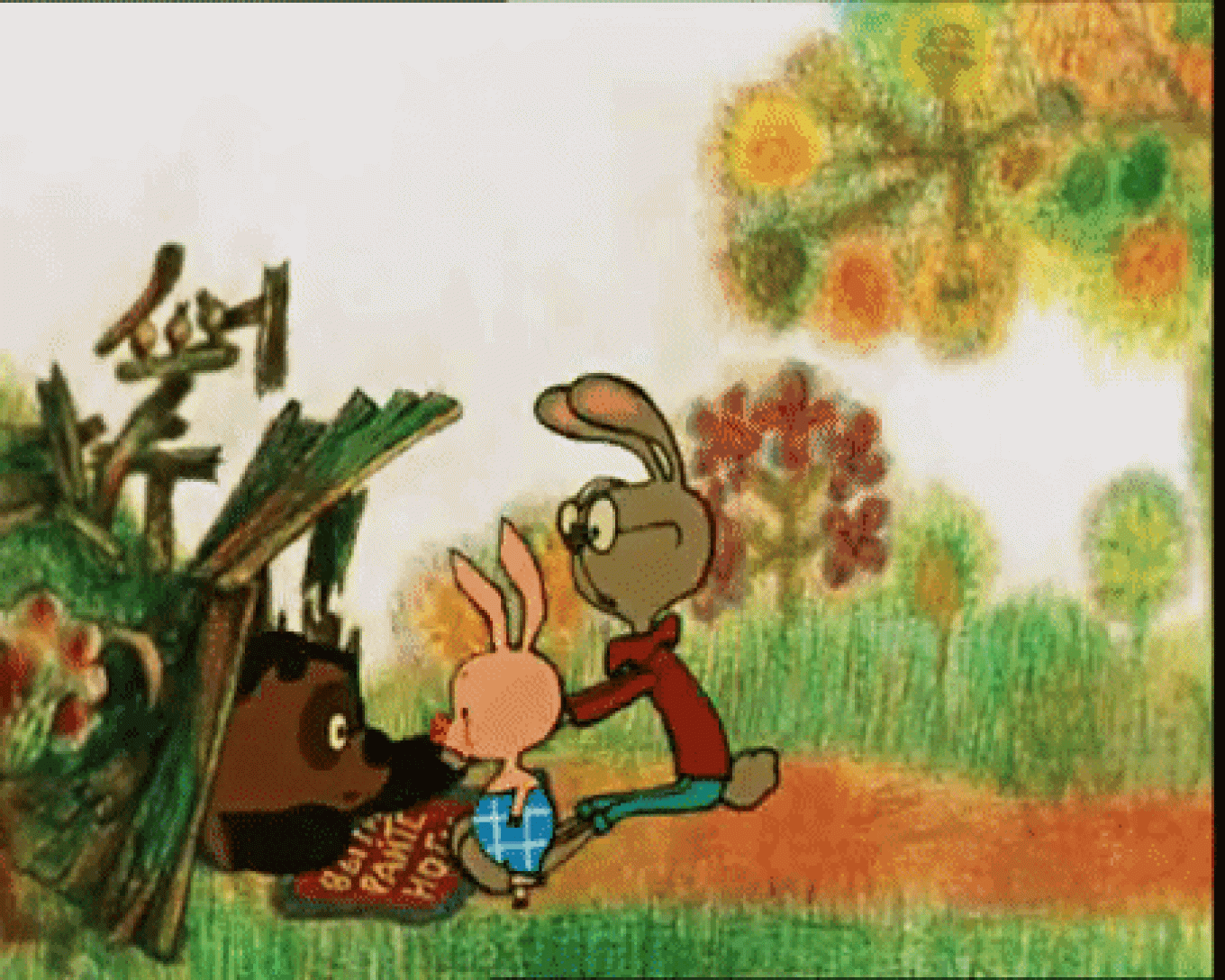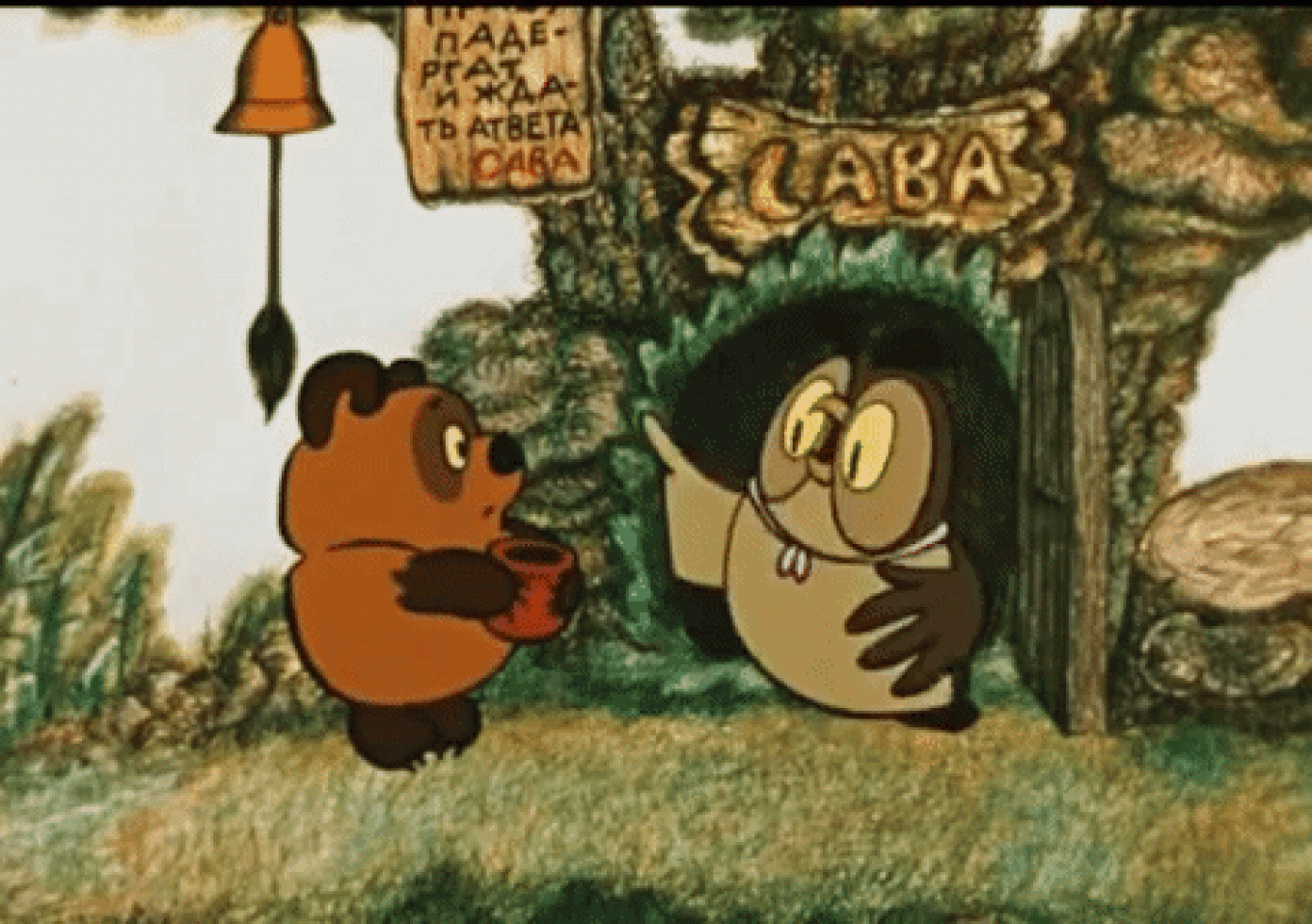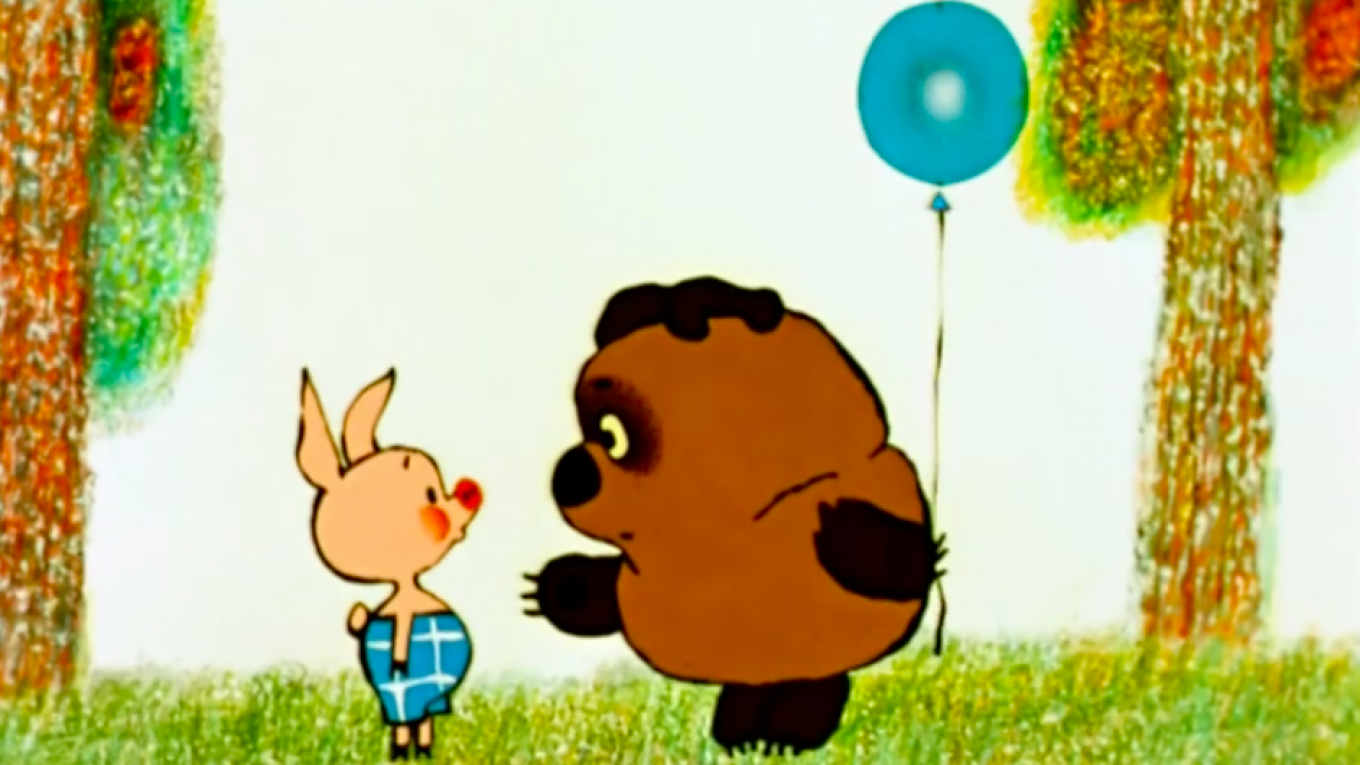Winnie-the-Pooh, written by British author A. A. Milne, was first published 90 years ago today on October 14, 1926. The stories about a boy and his anthropomorphic teddy bear went on to achieve worldwide popularity, notably in the Soviet Union, where the Soyuzmultfilm studio would release three films in the late 1960s and early 1970s based on Milne’s work.
Directed by Fyodor Khitruk, the animated shorts (totaling less than 45 minutes) remain some of the most celebrated cartoons in Russia today. On Soyuzmultfilm’s official YouTube channel, the film series has nearly 30 million views since it was released online in July 2014.
When Khitruk started making his version of Winnie the Pooh, he says he had never seen the Disney version more familiar to most Westerners.
“At that time, I hadn’t yet seen the Disney film,” Khitruk recalled in an interview in 2005. “Maybe, if I’d seen it, I wouldn’t have done my own. What’s the point in doing it over? But I should tell you that I’m not really satisfied with the Disney version. And now, in hindsight, I can tell you want the director of the second American film, Wolfgang Reitherman, told me. He also wasn’t happy with his version.”

Khitruk says he had some doubts about making the film when he did: “I was afraid to pursue my dream [of a Winnie the Pooh film] precisely because every page of the book was so dear to me. I first read it in English — I’d received it as a gift. Later I was acquainted with Zakhoder’s [Russian] translation. With his magnificent translation! Maybe it’s not even a translation, but a second version — that’s how interesting it turned out.”

One of the most significant differences between the Disney and Soviet Winnie the Pooh universes is the latter’s absence of Christopher Robin, the boy whose imagination brings his stuffed animals to life. “The first thing we did was remove Robin,” Khitruk said. “We distributed all his scenes to the other characters. And it was the right move because he only underscored that there are people and there are little animals or toys. For us, it was all one world — the world of Winnie the Pooh. Without animals and people — just characters. Our dear, beloved characters.”

The tone of the Soviet version is also far different from what you find in Disney’s Winnie the Pooh. Instead of a slow and dopey bear, Yevgeny Leonov’s character is fast-talking and tricky. The narrator, too, is a bit of a cynic.
“The author’s text was narrated by noted thespian Vladimir Osenev,” Khitruk explained. “He was a serious actor and he recorded his lines without hiding his disdain. ‘What the hell is this I’m reading?’ I thought about letting him go, but I liked the tone of his voice — the sarcastic intonation. After he saw the first film, he softened up. We searched long and hard for someone to voice Winnie the Pooh himself. We rejected a lot of people. Leonov didn’t have the right tone. He had a baritone timbre and a powerful chest. And then the sound technician suggested, ‘Why don’t I just raise his voice? I’ll speed it up…’ And at once I knew we had it. ‘Yes! Yes! We’ve found it!’ This simple sound trick opened up new opportunities, and that’s saying nothing about all the execution and stylistic ideas Leonov suggested for the character himself. Nobody else could have done it.”
Celebrate Winnie the Pooh’s 90th anniversary and watch all three Soyuzmultfilm short films on YouTube below.
A Message from The Moscow Times:
Dear readers,
We are facing unprecedented challenges. Russia's Prosecutor General's Office has designated The Moscow Times as an "undesirable" organization, criminalizing our work and putting our staff at risk of prosecution. This follows our earlier unjust labeling as a "foreign agent."
These actions are direct attempts to silence independent journalism in Russia. The authorities claim our work "discredits the decisions of the Russian leadership." We see things differently: we strive to provide accurate, unbiased reporting on Russia.
We, the journalists of The Moscow Times, refuse to be silenced. But to continue our work, we need your help.
Your support, no matter how small, makes a world of difference. If you can, please support us monthly starting from just $2. It's quick to set up, and every contribution makes a significant impact.
By supporting The Moscow Times, you're defending open, independent journalism in the face of repression. Thank you for standing with us.
Remind me later.






